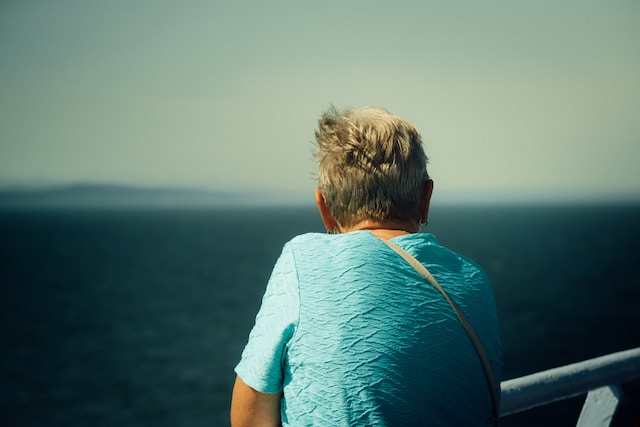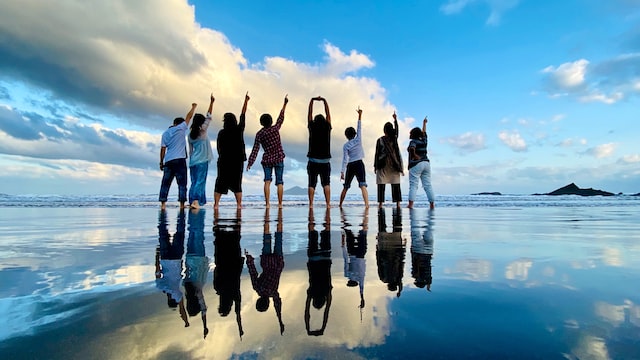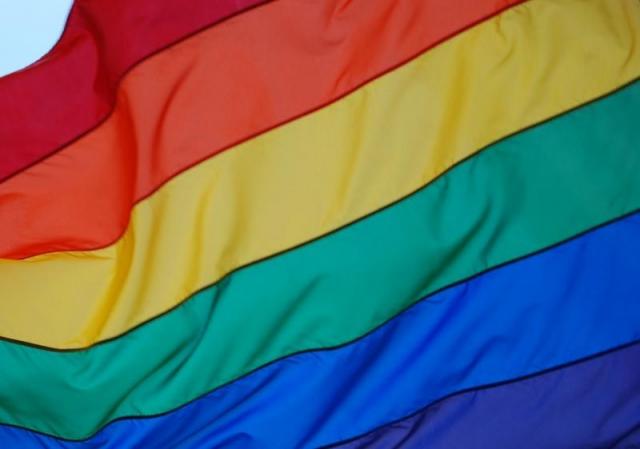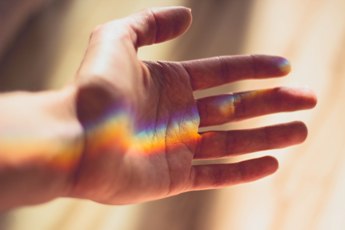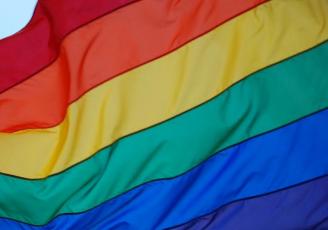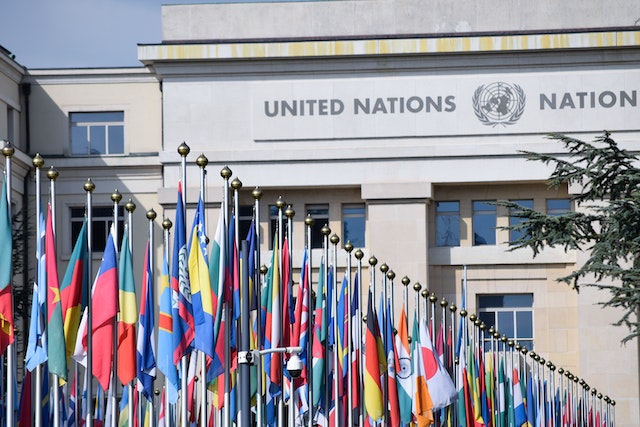New research looks at Rainbow elders' experiences; related updates on abuse of older people
Mon 06 Nov 2023
New research explores Takatāpui and Rainbow elders' views including protective factors to create wellbeing. We also highlight related work and reports addressing abuse of older people.
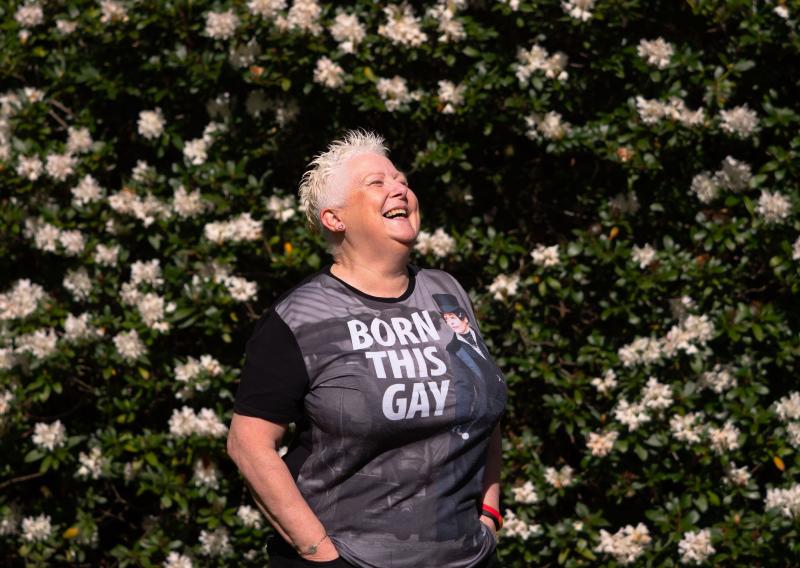
New research looks at Rainbow elders' experiences
Hohou te Rongo Kahukura – Outing Violence and Rainbow Hub Waikato spoke with and listened to Takatāpui and Rainbow elders through a combination of focus groups, interviews and an online survey.
The recommendations from the research are outlined in 3 brief factsheets for:
- Takatāpui and Rainbow community groups
- central and local government, funders, and policy makers
- older persons, family and whānau services meeting the needs of older people.
The research project had 2 goals:
"...to advocate for meaningful inclusion of the needs of Takatāpui and Rainbow older people in strategies, policies and services for older people in Aotearoa, and identify any specific risks of elder abuse, neglect and exploitation."
The findings and insights from Takatāpui and Rainbow elders are shared in 16 podcasts, a report and 3 factsheets.
The podcasts share brief snippets of recordings from the interviews with Takatāpui and Rainbow elders, grouped around specific themes. For example you can listen to Takatāpui and Rainbow elders talking about their experiences of:
- Family — sources of joy
- Family — sources of pain
- Belonging, acceptance and surviving discrimination
- Community hopes and dreams, and much more.
Interview participants included people with a range of gender and sexual identity, a range of ages between 54 and 79 years, with and without disabilities, and who identified as Māori, Pasifika and pākehā.
The report, Uplifting Takatāpui and Rainbow Elder Voices: Tukua kia tū takitahi ngā whetū o te rangi (2023), gives an overview of the context, project and approach. It also shares findings from the survey, focus groups and interviews.
More than 400 people over age 55 completed the online survey, representing a range of Takatāpui and Rainbow identities and including Māori, Pasifika, Pākehā and other ethnic identities. Chapters 4-9 in the report group together findings around the following themes:
- Social connections vs isolation
- Mistreatment, discrimination and their impacts
- Community groups and services for older people
- Families and whānau
- Safety with partners and caregivers
- Ageing – hopes, plans and fears.
Throughout the report, the need for more opportunities for social connection was a consistent and key message. The survey findings highlighted how many Takatāpui and Rainbow elders struggled to balance safety and isolation due to the impacts of multiple and compounding forms of mistreatment and discrimination from racism, heterosexism and colonisation; state violence; and abuse, exclusion, denial and violence from family members.
The survey found that respondents experienced a range of negative behaviours from family members because of their sexuality or gender. For example, 31% had family members stop speaking to them for a long time or end their relationship and 23% had family members refuse to believe their identity. Different groups of Takatāpui and Rainbow elders reported different experiences of both negative and positives experiences. For example, trans and non-binary elders reported the highest rates for most negative behaviours in families with 62% of trans and non-binary elders having had family members stop speaking to them or end their relationship, and 47% having not been believed about their identity.
While most respondents had told some but not all family members, 9% said no one in their family knew. Again, there were differences between groups. For example bisexual elders were the most likely to have not told anyone (23%) and least likely to be out to everyone in their family (34%).
The report highlights that this context means:
"...many Takatāpui and Rainbow elders are isolated, less resourced and more vulnerable to potential elder abuse – both inside families, and because they are more reliant on other social support systems, which may not always be safe and welcoming..."
It also went on to say:
"Families are important sites of belonging for most people, but for Māori, Pasifika and other ethnic elders, families, whānau and wider communities are also protection against racism and white dominated systems in Aotearoa New Zealand. Māori, Pasifika and other ethnic participants reported higher rates than all participants for every negative behaviour, including 41% who had family members stop speaking to them or end their relationship, and nearly one third (30%) who had not been believed about their identity inside their family. The combination of racism and these high rates of disconnection from family and/or whānau exacerbate risks of isolation and minimise access to support and help that families can provide when needed."
However, the research also documented many elders experience of support from family members. Most respondents reported supportive behaviours from at least some family members. Of these behaviours, the least common was a family member doing research to learn how to support the elder, with just 39% reporting this. The report notes that:
"Participants who talked about being well supported by their families often enthusiastically mentioned love and care from multiple generations in their family and whānau."
In addition, 90% of respondents said they had people “like family” in their lives, and 65% said these people were as important to them as the family they grew up in.
The survey included questions about abusive behaviours from caregivers and partners. Only 7 people (2%) said they had concerns about their partner or caregiver. The report highlights that it can be very difficult for Takatāpui and Rainbow people to ask for help when abusive or coercive behaviours are taking place from an intimate partner:
"Because intimate partners may provide significant support to people in Takatāpui and Rainbow communities, especially when there is less access to support from families and whānau and in the context of wider discrimination."
Previous research indicates Takatāpui and Rainbow people are likely to experience higher rates of intimate partner violence, and also experience significantly more barriers to seeking help or disclosing. None of the 7 elders who had concerns about their partner or caregiver had approached a specialist agency responding to elder abuse or family or sexual violence.
The project held 6 focus groups to invite feedback from Takatāpui, Rainbow Pasifika and ethnic elders and Māori, Pasifika and ethnic service providers. Chapter 3 of the report highlights key findings from the focus groups. The focus groups talked about the impacts of racism and colonisation. They raised experiences and concerns around isolation, loneliness and exclusion, often in spaces or places that were not informed, understanding or respectful of their culture and values. The authors highlighted that "...for all Takatāpui and Rainbow focus group members, connections between older and younger generations were vitally important." The focus groups talked about challenges noting the lack of services specific to their needs, and the need for funding and research to support the development of culturally specific services.
Both elders and service providers identified many suggestions. For example feedback from the Takatāpui group included:
"Whānau need safe spaces to learn about Takatāpuitanga so that they can apply it to their own home and uphold tikanga and kawa. Wānanga about the whakapapa of Takatāpuitanga, the whakapapa of Kahukura will make these words and concepts more accessible to whānau."
Feedback from the Pasifika Rainbow group identified:
"Pasifika Rainbow+ elders need all elder spaces to be safe and appropriate for Pasifika, and safe and appropriate for Rainbow+ people."
The ethnic Rainbow focus group identified gaps between young and older Rainbow people, and lack of visibility of Rainbow elders. They identified a need for resources to help people learn and safe places for family to get support, and:
"We all need community and representation as human beings, and ethnic rainbow elders need more places to find community. Focus group participants were not aware of any elder ethnic queer groups or services in New Zealand, and they believed there was a need for more rainbow support services that are community-led and rainbow-centred. For most ethnic rainbow elders, when their partners leave them or die the whole world collapses."
In addition to the many focus group suggestions, Chapter 9 of the report explores Rainbow elders hopes, worries and plans for the future.
Drawing on the interviews, focus groups and survey, the report outlines recommendations for central and local government, services for older people, family and whanāu, and Takatāpui and Rainbow community groups (see pages 6-8).
In the latest EANP (Elder Abuse and Neglect Prevention services) Connects newsletter, Hanny Naus, of Age Concern New Zealand, said:
"The report includes recommendations for all of us involved in services for older people. Their suggestions encourage our thinking and our actions..."
Related Aotearoa News
Age Concern New Zealand and Ministry of Social Development (MSD) are working together on a project to strengthen workforce capabilities across Elder Abuse Response Services. The work will explore development of resources, tools and guidance for training that align with Te Aorerekura’s Family Violence Entry to Expert Capability Framework. The MSD September 2023 Family Violence and Sexual Violence Update said the project will focus on 3 areas:
- "Developing a framework for consent in relation to elder abuse services
- Guidance on best practice for how elder abuse services relate to Intimate Partner Violence (IPV) and specialist family violence organisations
- An assessment of where the Elder Abuse Response Services (EARS) frontline teams sit in relation to the E2E capability framework."
In recognition of the International Day of Older Persons, Karen Billings-Jensen, Chief Executive of Age Concern New Zealand said "The UN's focus on fulfilling the promises of the Universal Declaration of Human Rights for Older Persons is a crucial reminder that older people have the right to make their own choices and live with dignity and respect."
Related international news
Update: The Goverment of Western Australia published 2 research reports related to abuse of older people: Everyone’s business: Research into responses to the abuse of older people (elder abuse) in Western Australia Report (2023) and Research into the mistreatment of older Aboriginal Australians (2022). The reports were commissioned as an initiative of the Western Australia Strategy to Respond to the Abuse of Older People (Elder Abuse) 2019-2029. Resources to support awareness and understanding were also published.
Following the United Nations (UN) International Day of Older Persons on 1 October, UN experts issued an official joint statement highlighting the human rights challenges faced by older Rainbow people, and called on countries to design and implement measures to address violence and discrimination. They said "When persons find themselves at the intersection of older age and being LGBT, they face a compounded situation that leads to an increased risk of heightened discrimination, social exclusion, and violence." The Statement outlines 9 recommendations for UN Member States that address structural ageism; public policy including anti-discrimination legislation that explicitly includes age, sexual orientation, and gender identity; awareness programmes; accessibility; training; specialised services; data collection and engagement with organisations to ensure the meaningful participation of older persons and LGBT persons in development and implementation of policies and programs.
UN experts also issued the following related statements:
- UN experts issue guidance in relation to LGBT persons living with disabilities (October 2023)
- UN expert calls for scrapping of colonial laws and policies that marginalise LGBT persons (October 2023).
Also in October, at the 54th session of the UN Human Rights Council, a Human rights of older persons resolution (A/HRC/54/L.20) was adopted which focused on addressing violence and abuse of older people.
In August 2023, the UN Independent Expert on the enjoyment of all human rights by older persons, Claudia Mahler, released her Report on violence, abuse and neglect of older persons (A/HRC/54/26). The report provides an international overview of abuse of older people including definition and types of violence, drivers of abuse and violence including ageism, legal and policy frameworks, data, prevention, responses and services, and access to justice. The report concludes with recommendations for States, researchers, non-government organisations and independent monitoring bodies. In launching the report, Mahler said "Combatting abuse in old age is not a priority at national, regional or global levels." She also said "Ageism plays a significant role and risk factor in the prevalence of abuse on older persons." The Family Violence Death Review Committee published their Input for the report of the Independent Expert on the enjoyment of all human rights by older persons (2023).
In July 2023, the UN Independent Expert on protection against violence and discrimination based on sexual orientation and gender identity, Victor Madrigal Borloz, released the report Protection against violence and discrimination based on sexual orientation and gender identity (A/78/227). It looks at the impact of colonialism in violence and discrimination based on sexual orientation and gender identity, and how this relates to human rights. The report includes 12 recommendations for UN Member States. An easy to read version of the report is also available.
WHO developed a new guide to support intergenerational practice to promote interaction among people of different ages. The guide, Connecting generations: planning and implementing interventions for intergenerational contact (2023), was developed for the Global Campaign to Combat Ageism.
WHO is calling for an intervention accelerator to help identify promising interventions to address abuse of older people in community and institution settings. Learn more in the article, High time for an intervention accelerator to prevent abuse of older people (2022).
Related media
Fighting for a more visible Pacific Rainbow community, E-Tangata, 17.12.2023
Manalagi, Mariah — and a Pacific queer story, E-Tangata, 10.12.2023
Elder Abuse w/ Hanny Naus: November 29th, 2023, 95bFM, 29.11.2023
25 years of empowering kaumātua: Rauawaawa celebrates silver jubilee, Te Ao Māori News, 06.11.2023
Takatāpui mātauranga drives research, Waatea News, 31.10.2023
Elderly Māori hard-hit by rising costs as they refinance to help whānau, Newsroom, 27.10.2023
TOA PACIFIC Celebrate 20 Years, Pasefika Proud story, 10.2023
Image: Centre for Aging Better on Unsplash



